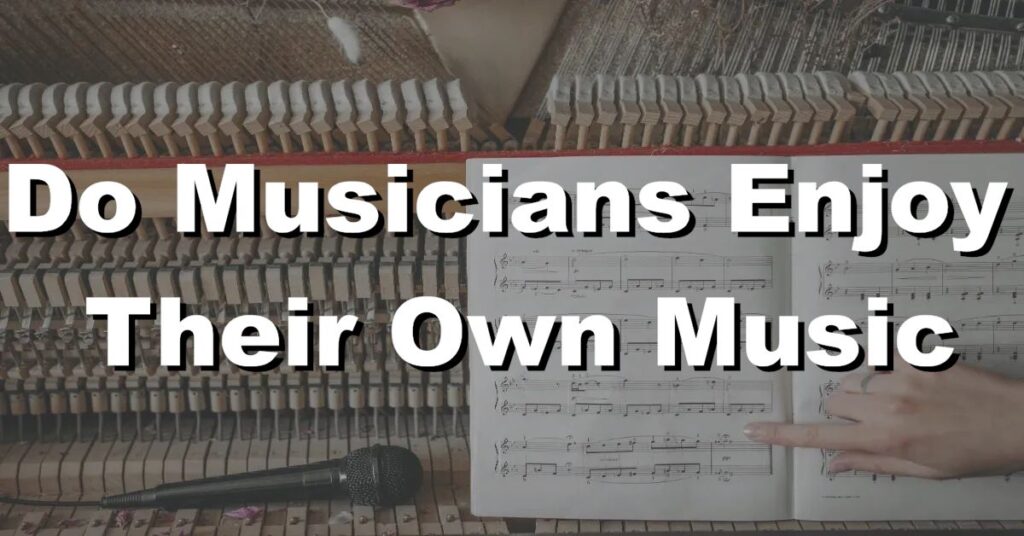In this blog post, we will explore whether or not musicians actually enjoy listening to their own music.
We will discuss the various factors that influence a musician’s relationship with their own work, and we will provide examples of musicians who have expressed both enjoyment and dissatisfaction with their own music.
The Emotional Benefits of Making Music for Musicians
For musicians, creating and playing music offers a wealth of emotional benefits. Making music provides an outlet for self-expression, allowing musicians to channel their emotions, experiences, and thoughts into their compositions.
It serves as a means of catharsis, enabling musicians to release pent-up emotions and find solace in their creative process. Additionally, making music can be a source of joy and fulfillment, providing a sense of accomplishment and personal satisfaction.
Listening to Your Own Music: The Psychology of Self-Critique and Artistic Growth
Musicians often engage in self-critique when listening to their own music. While this can be a valuable tool for artistic growth, it can also be a double-edged sword. On one hand, self-critique helps musicians identify areas for improvement, refine their skills, and enhance their musicality.
On the other hand, it can lead to self-doubt and hinder the enjoyment of one’s own performances. Finding a balance between constructive criticism and self-appreciation is crucial for musicians to maintain their artistic motivation and confidence.
Why Musicians Often Struggle to Enjoy Their Own Performances
Despite the talent and skill musicians possess, many find it challenging to fully enjoy their own performances. This phenomenon, known as “performance anxiety” or “stage fright,” stems from various factors such as self-consciousness, fear of judgment, and high expectations.
Musicians may become overly focused on technical aspects or critical self-evaluation during performances, making it difficult to fully immerse themselves in the music and experience pure enjoyment.
How Sharing Your Music with Others Can Enhance Your Own Enjoyment
Sharing one’s music with others can greatly enhance the enjoyment and fulfillment derived from making music. Whether it’s performing for an audience, collaborating with fellow musicians, or receiving feedback and appreciation, the act of sharing creates a sense of connection and validation.
It provides an opportunity for musicians to witness the impact of their music on others, fostering a sense of purpose and affirmation that can enhance their own enjoyment of the creative process.
Challenges of Making Music for Personal Fulfillment and Professional Success
For musicians, navigating the balance between personal fulfillment and professional success can be a challenging endeavor. Striving for artistic growth and staying true to one’s creative vision while also meeting the demands and expectations of the industry and audience can create internal conflicts.
Additionally, the pursuit of professional success may involve sacrifices, intense competition, and the pressure to constantly deliver exceptional performances. Managing these challenges requires self-reflection, resilience, and a genuine commitment to finding fulfillment in the process of making music, irrespective of external recognition or validation.
Conclusion
In conclusion, whether or not musicians enjoy their own music varies from artist to artist. Some musicians create music that they genuinely enjoy listening to and may continue to listen to even after the recording process is complete. Others may find it difficult to separate themselves from the creative process and may have a more critical view of their own music.
Additionally, some musicians may enjoy playing their music live more than listening to recorded versions. Overall, it is a personal preference for each musician, and there is no one-size-fits-all answer.

